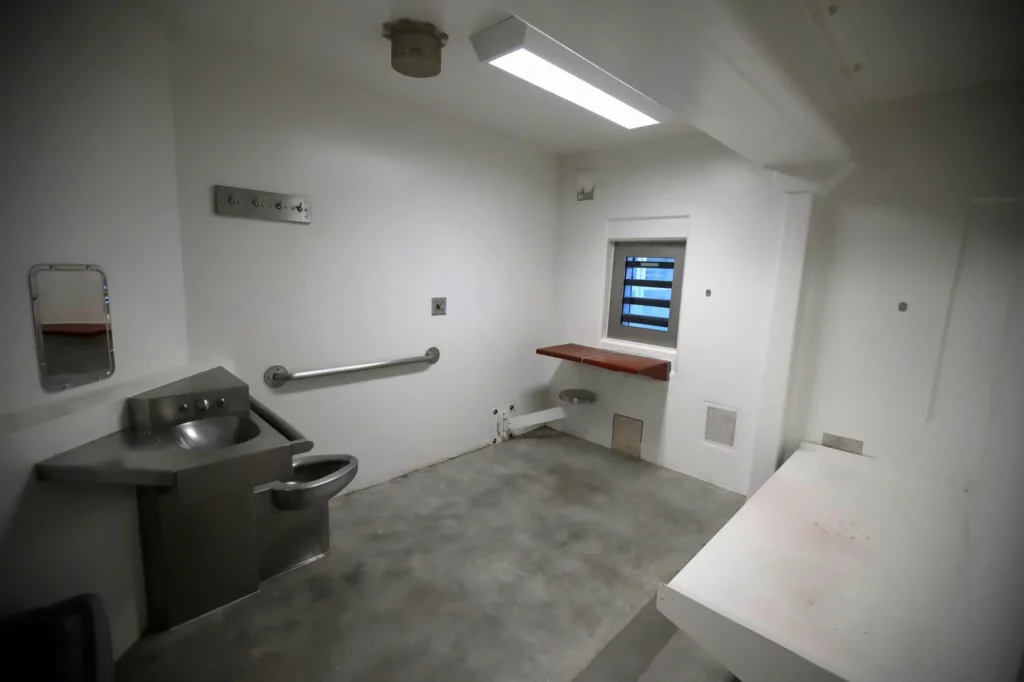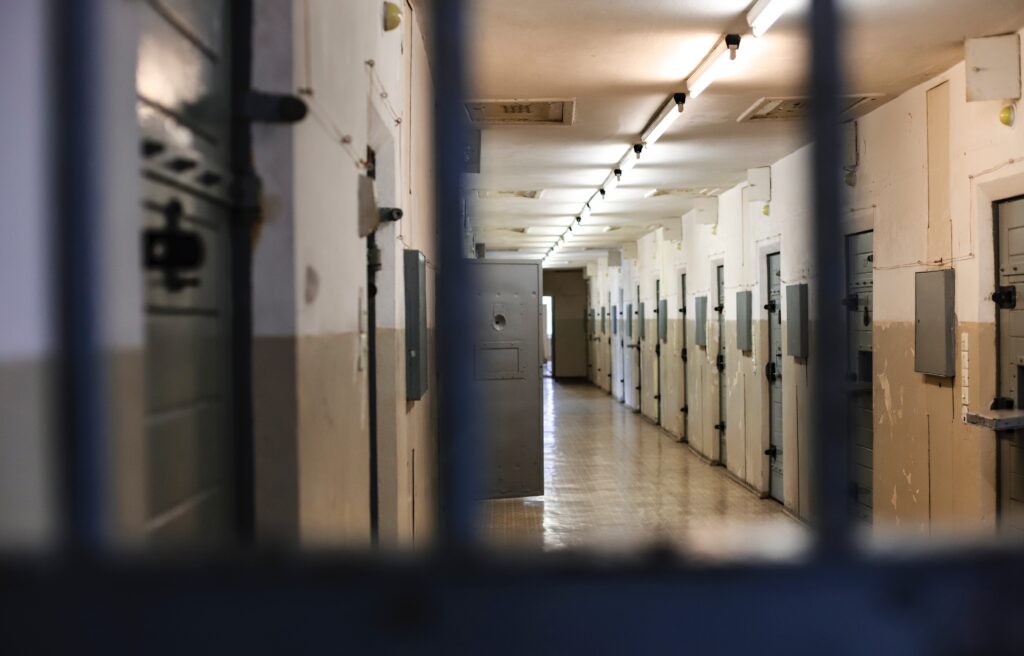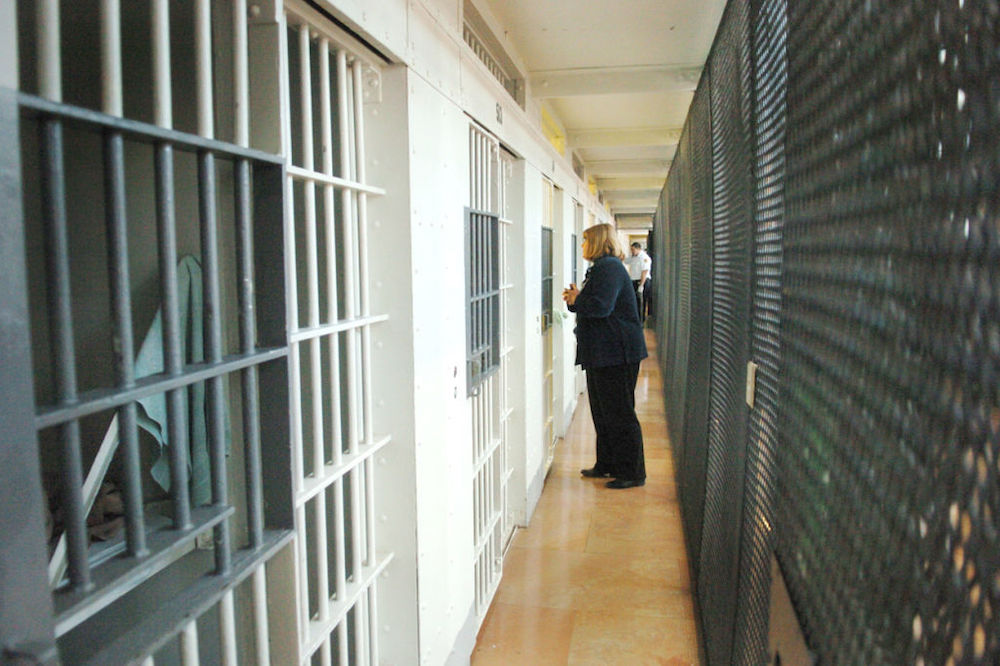End Solitary Confinement
Solitary confinement is torture under international human rights law. But this abusive practice is common and on the rise in the United States.
RFK Human Rights partners with grassroots groups in campaigns to abolish solitary confinement though education, legislation, and advocacy and litigation in domestic courts and international human rights mechanisms. Nationwide, we fight to end solitary confinement and its devastating effects in prisons, jails, youth treatment centers, and immigration detention centers.
Learn More
Browse by State
WHAT YOU NEED TO KNOW
122,000
Over 122,000 people are in solitary confinement on any given day in the U.S.
78%
People held in solitary confinement are 78% more likely to attempt suicide within a year of release from prison.
>33%
More than a third of people in solitary confinement become psychotic or suicidal within the first 15 days.
> 15 days
Consecutive solitary confinement of more than 15 days is torture under international human rights law.
WHAT’S AT STAKE
Constant screaming, banging and crying echoing in the air. Hypertension, chronic headaches, trembling, sweaty palms, extreme dizziness and heart palpitations. Psychosis, delusions, and thoughts of self-harm.
These are just some of the devastating effects and conditions of solitary confinement. While often touted as a security measure, solitary confinement make prisons less safe. It causes serious and harmful health effects, including panic attacks, long-term mental health disorders, and heightened risk of suicide.
Solitary confinement also disproportionately harms people of color, who are overrepresented in jails and detention centers settings in the criminal and immigration legal systems. In immigration detention, Black immigrants are six times more likely than others to be held in solitary confinement.
Alongside grassroots human rights coalitions, RFK Human Rights fights to end the torture of solitary confinement in U.S. jails, prisons, and detention centers.
OUR WORK
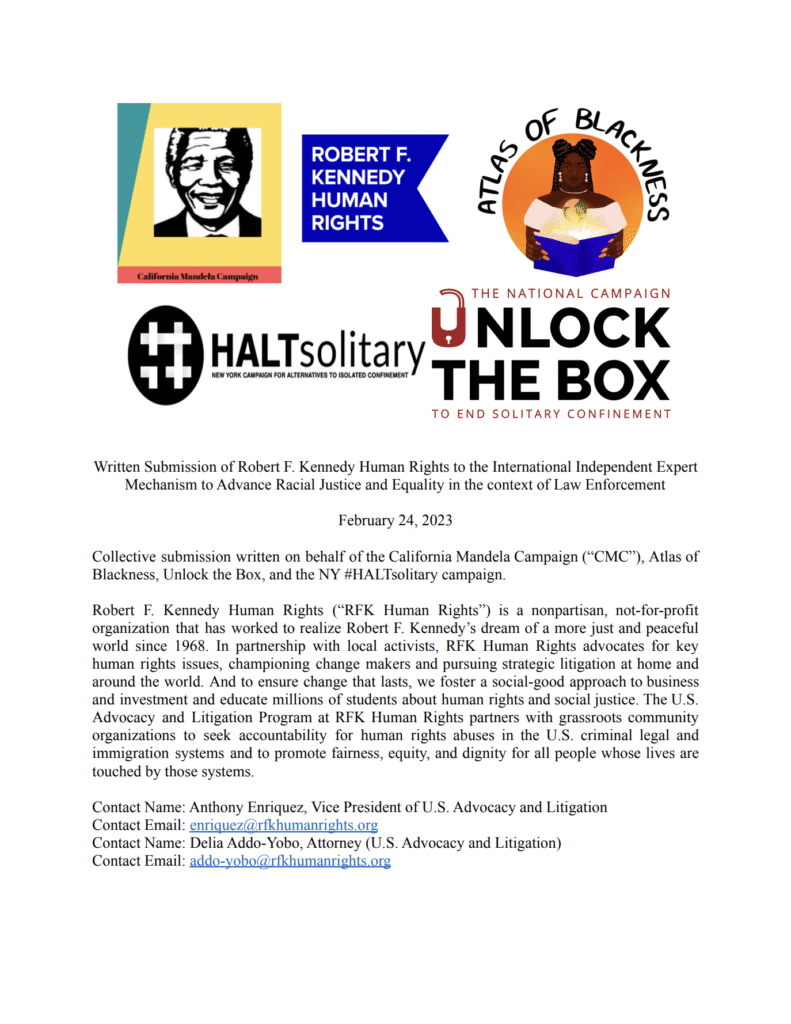
Reports
In the U.S., solitary confinement is disproportionately used against Afro-descendant people across jails, prisons, immigration centers, and even foster care—causing profound psychological, physical, and emotional harm. Within just 15 days, over a third of those subjected to solitary become psychotic or suicidal, and survivors are 78% more likely to die by suicide within a year of release. These conditions often meet the international definition of torture.
In partnership with grassroots allies, RFK Human Rights submitted a report to the U.N. Expert Mechanism on Racial Justice (EMLER) ahead of its 2023 U.S. visit, documenting systemic abuse of solitary confinement in California, New York, Louisiana, and Minnesota.
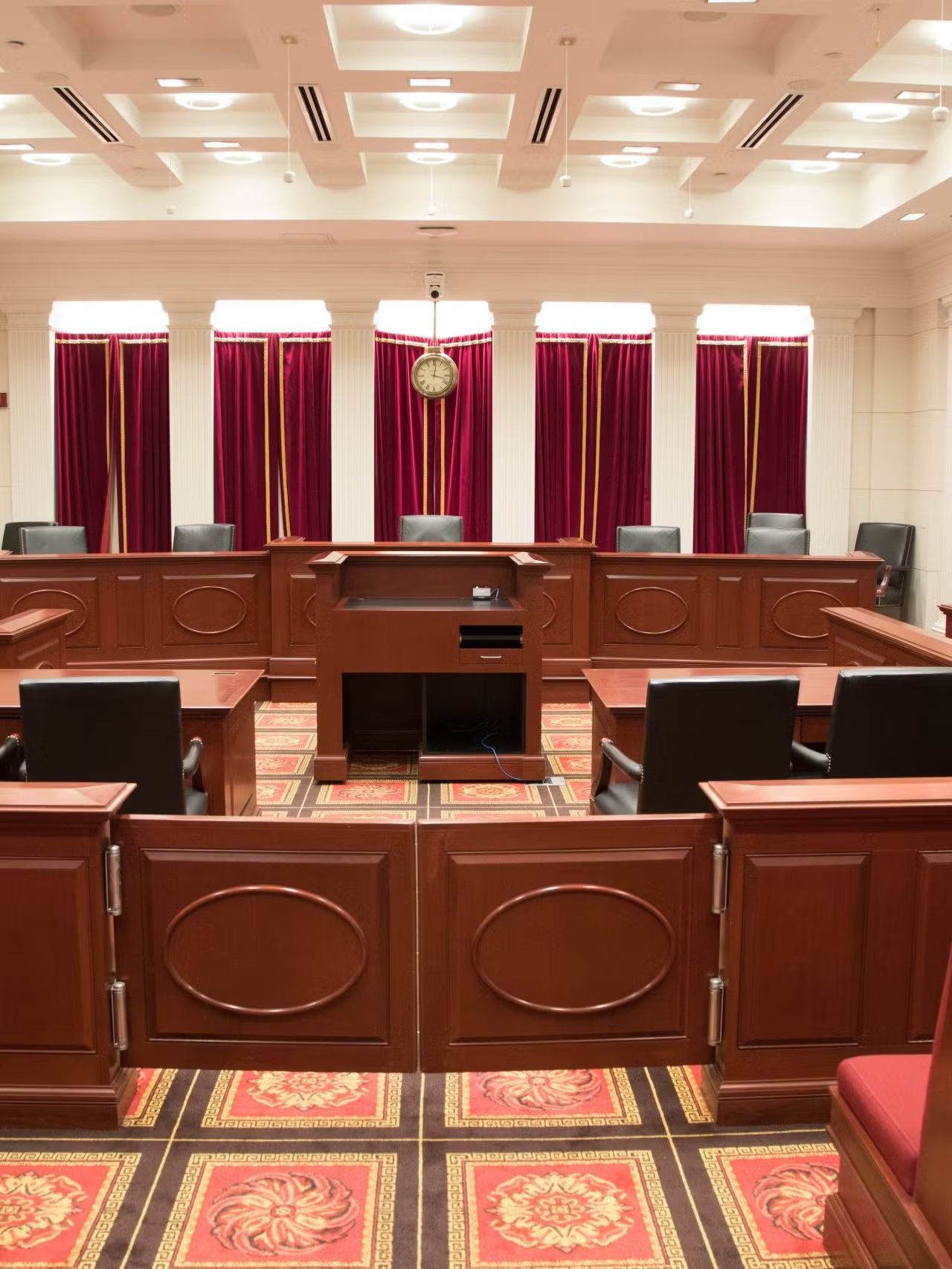
Litigation
Mr. Cenesca, a Haitian immigrant, spent three years in detention—suffering abuse, medical neglect, and months in solitary confinement as punishment for asserting his rights—without ever seeing a judge. Under current law, the government can detain immigrants indefinitely without individualized justification or a hearing. With over 3 million cases backlogged in immigration court and ICE’s routine use of solitary confinement, Mr. Cenesca’s experience is disturbingly common.
Advocacy & Education
RFK Human Rights empowers U.S. campaigns for abolition of solitary confinement with advocacy and education on international human rights law.
In May 2023, in advance of a Minnesota legislature vote on a bill to abolish solitary confinement of children, RFK Human Rights and partners hosted the UN’s International Independent Expert Mechanism to Advance Racial Justice and Equality in Law Enforcement (EMLER) in a community forum in Minnesota. Local and national media reported on testimony from survivors of solitary confinement. And the legislature unanimously passed the ban on solitary confinement of children shortly after.
New York
ABOUT SOLITARY CONFINEMENT IN NEW YORK
Despite overwhelming evidence of the devastating effects of solitary confinement, New York’s leaders have suspended the HALT Solitary Confinement Act, designed to prevent the cruel and inhumane practice of prolonged isolation in state prisons and jails.
By suspending the HALT Solitary Law, New York has reversed critical protections that prevented people from being locked in tiny cells for 23 hours a day, often for months or years on end. This decision flies in the face of decades of research and international human rights standards that call solitary confinement torture.
Solitary confinement does not improve safety. It destroys the lives of people who are disproportionately represented in New York’s incarcerated population: Black and brown people, the elderly, and people with mental health conditions.
THE INSIDE STORY
The Batavia ICE detention center ranks among the top five facilities in the country for its use of solitary confinement despite being significantly smaller than others on the list. Between 2017 and 2023, 673 detainees were placed in solitary, with confinements averaging 25 days—exceeding the 15-day threshold considered torture by the UN and New York state law.
OUR INTERVENTIONS
In December 2019, we submitted a public comment to the NYC Board of Correction, reiterating that solitary confinement constitutes cruel, inhuman, or degrading treatment, and can rise to the level of torture, in violation of international human rights law and the tenets of basic human dignity. The comment was a direct response to the Board’s proposed new and amended rules concerning restrictive housing in New York City’s correctional facilities.
In 2024, we filed a federal civil rights complaint with several other organizations on behalf of detained individuals at the Buffalo Federal Detention Facility (BFDF). The statement called for an investigation into the unlawful retaliation and abuse against detainees after they participated in a peaceful hunger strike to protest conditions in the facility.
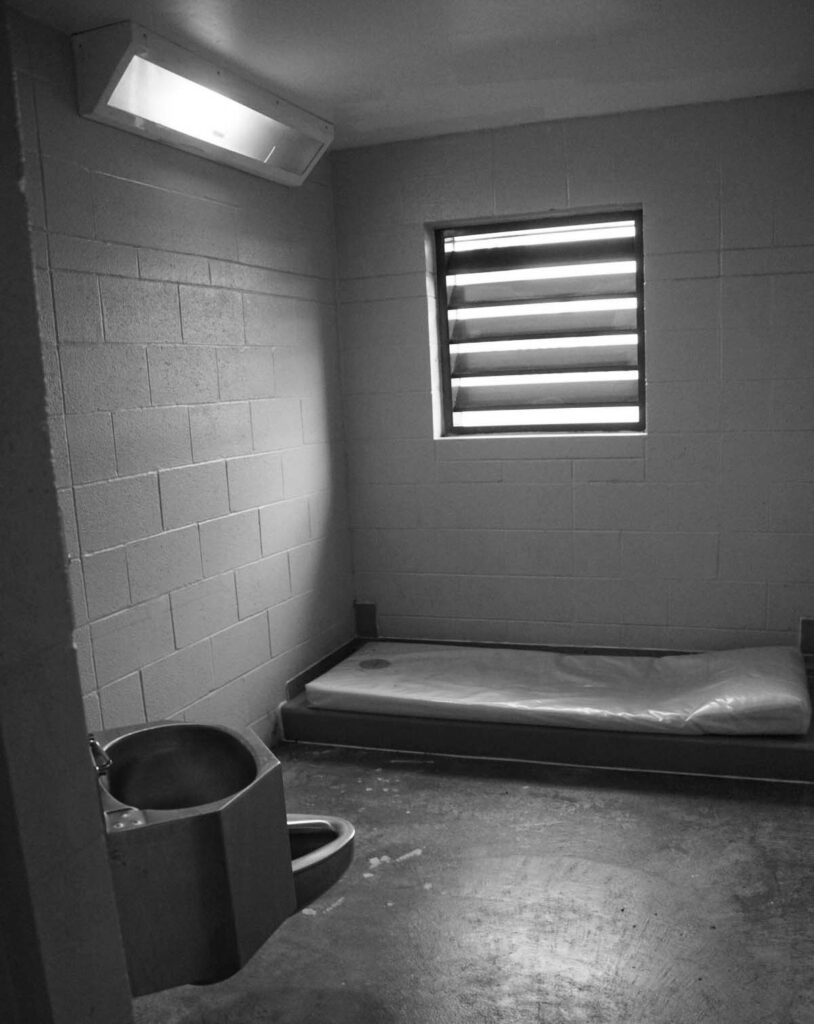
Related Content
“The level at which Batavia wields solitary confinement against people is disproportionately high. I would characterize it as a highly punitive and carceral setting for immigration detention.”
– Attorney Sarah Decker of RFK Human Rights on the inhumane conditions at Batavia ICE detention center
California
ABOUT SOLITARY CONFINEMENT IN CALIFORNIA
For several years, advocates in California have sought legislative abolition of solitary confinement through the California Mandela Act, part of a nationwide push to curb widespread use of solitary confinement. Proposed legislation would prohibit the practice for pregnant women, those younger than 26, those older than 59, and people with certain disabilities or mental health disorders. For others, stretches in solitary would be limited to 15 consecutive days and 45 days in any 180-day period. Periodic check-ins and out of cell programming would be required. California’s bill builds on efforts of at least 10 other states that have limited or banned punitive segregation.
THE INSIDE STORY
Four years ago, Daniel Tse, former legal fellow at RFK Human Rights and co-founder of the Cameroon Advocacy Network, was detained as an asylum seeker from Cameroon in five different California immigration facilities. He witnessed fellow inmates sent to solitary confinement, some for no discernible reason, and the terrible conditions at Theo Lacy Maximum Security Jail.
OUR INTERVENTION
In 2022, Daniel Tse described his experience in an open statement to Governor Gavin Newsom. The statement was in response to Governor Newsom’s consideration of the Mandela Act. It highlighted that according to the Census of State and Federal Adult Correctional Facilities, between state and federal prisons and local jails, about 2.3 million people were incarcerated in the United States in 2019, according to the Census of State and Federal Adult Correctional Facilities. That same year, an estimated 55,000 to 62,500 people had spent the previous 15 days in solitary confinement in state and federal prisons, including immigration detention facilities, often in cells smaller than a parking space.
“I was detained in the barracks, where the constant sounds of screaming, banging and crying echoed in the air. But as we walked past the Special Housing Units where people were held in solitary confinement. I realized that I was better off than them. Hearing human beings bang against the doors of solitary confinement, seeing desperate eyes through tiny square holes, I shuddered.”
– Daniel Tse, former RFK Human Rights legal fellow, on his experience at Theo Lacy Maximum Security Jail in Santa Ana California
North Carolina
ABOUT SOLITARY CONFINEMENT IN NORTH CAROLINA
In North Carolina alone, around 3,000 people are held in solitary confinement at any given time. Long-term solitary confinement is common for people younger than 18 and older than 65 and for people with mental health and other disabilities.
There’s also a clear racial bias in North Carolina’s use of solitary confinement. According to a 2016 Vera Institute report, people of color make up about 30% of the state’s population and 50% of NC’s incarcerated population, but represent 62% of all people in solitary confinement and 70% to 80% of those in the worst solitary conditions.
OUR INTERVENTIONS
In 2023, we published a call to action, encouraging North Carolina residents to contact Governor Roy Cooper and their state legislators, urging them to adopt the Mandela Rules for incarcerated people in the state. We amplified the #EndSolitaryNC movement, and encouraged state residents to donate to the cause and share messaging through their networks.
In November 2024, RFK Human Rights presented the testimony of survivors of solitary confinement in North Carolina to the United Nations Working Group of Experts on People of African Descent. We called on the Working Group to urge the United States to declare solitary confinement to be torture; offer free and accessible mental health services; and memorialize victims and survivors of solitary confinement.
“Solitary confinement, also known as lockdown, isolation, segregation, or Special Housing Units, harms at least 122,000 people a day in the United States.”
– Delia Addo-Yobo, U.S. Staff Attorney at RFK Human Rights
Minnesota
ABOUT SOLITARY CONFINEMENT IN MINNESOTA
In 2019, nearly 60% of people sent to solitary confinement in Minnesota were Black or Native American. Activists have pushed for years for the passage of a bill that would end the practice of solitary confinement in Minnesota’s juvenile correctional facilities.
OUR INTERVENTION
In 2023, we joined several organizations and Black residents of Minnesota in addressing a United Nations panel on the shocking and inhumane practice of placing children in solitary in Minnesota. The UN visit to Minneapolis was part of a two-week tour examining racial justice and police violence in cities across the U.S.
“Within two weeks of being kept in solitary confinement, more than a third of people experience psychosis or suicidal thoughts. And those who have experienced solitary confinement are 78% more likely to attempt suicide within a year of being released from prison.”
– Delia Addo-Yobo, U.S. Staff Attorney at RFK Human Rights
National & Multi-State
ABOUT SOLITARY CONFINEMENT IN THE U.S.
Prolonged solitary confinement is a recognized form of torture under international human rights law, yet it is used freely in the U.S. The recent law banning solitary confinement in New York City jails is a necessary step forward in securing human rights for all.
Propelled by human rights groups and grassroots organizations, the campaign to end the torture of solitary confinement is gaining national momentum. Partnering with groups such as End Solitary NC, the California Mandela Campaign, and Unlock the Box, Robert F. Kennedy Human Rights has been working to restrict or end solitary confinement at the state level as well as nationwide. RFKHR has also called for investigation into the racially discriminatory usage of solitary confinement.
OUR INTERVENTION
In 2023, after years of advocacy that included RFKHR’s activism alongside Atlas of Blackness and the Legal Rights Center, the Minnesota legislature passed a bipartisan bill to prohibit placing juveniles in solitary confinement as a form of punishment. Building on that progress, RFKHR attorneys are now working with organizations from North Carolina and California to curb the use of solitary.
“Solitary confinement is an affront to the dignity of human beings. While our work is far from over, the increasing political will to ban solitary confinement at the state and federal level gives hope that we can end prison torture for good.”
– Anthony Enriquez, Vice President of U.S. Advocacy and Litigation at RFK Human Rights
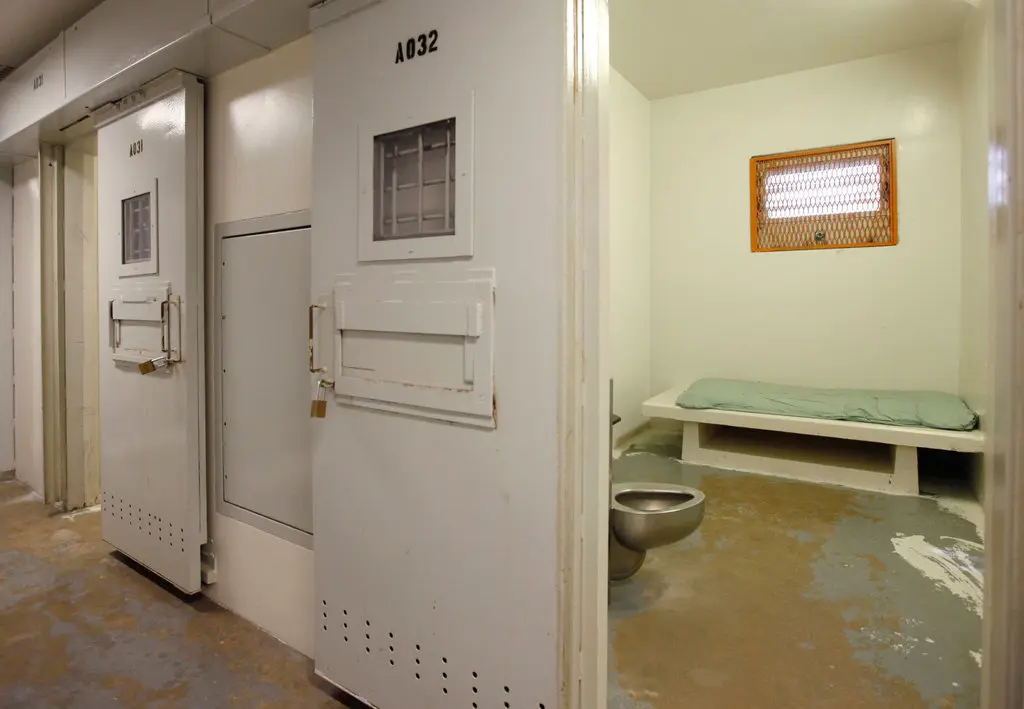
Related Content


